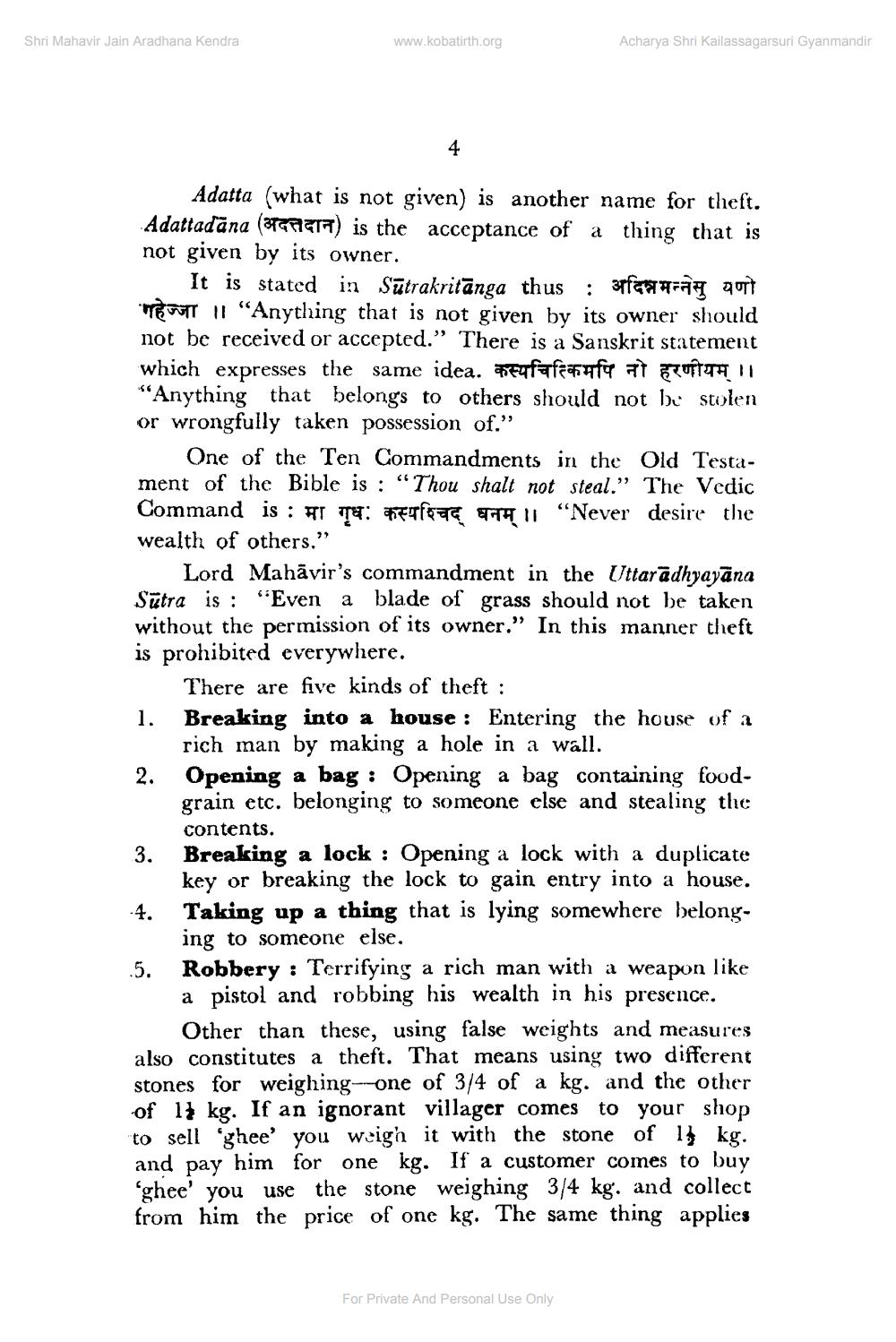________________
Shri Mahavir Jain Aradhana Kendra
www.kobatirth.org
Acharya Shri Kailassagarsuri Gyanmandir
Adatta (what is not given) is another name for theft. Adattadana (TOPICTT) is the acceptance of a thing that is not given by its owner.
It is stated in Sūtrakritānga thus: 3pf a d gott WEST 11 "Anything that is not given by its owner should not be received or accepted.” There is a Sanskrit statement which expresses the same idea. कस्यचित्किमपि नो हरणीयम् ।। "Anything that belongs to others should not be stolen or wrongfully taken possession of."
One of the Ten Commandments in the Old Testament of the Bible is : “Thou shalt not steal." The Vedic Command is : मा गृधः कस्यश्चिद् धनम् ।। "Never desire the wealth of others.”
Lord Mahāyir's commandment in the Uttaradhyayāna Sutra is : "Even a blade of grass should not be taken without the permission of its owner.” In this manner theft is prohibited everywhere.
There are five kinds of theft : Breaking into a house : Entering the house of a
rich man by making a hole in a wall. 2. Opening a bag : Opening a bag containing food
grain etc. belonging to someone else and stealing the
contents. 3. Breaking a lock : Opening a lock with a duplicate
key or breaking the lock to gain entry into a house. 4. Taking up a thing that is lying somewhere belong
ing to someone else. .5. Robbery : Terrifying a rich man with a weapon like
a pistol and robbing his wealth in his presence.
Other than these, using false weights and measures also constitutes a theft. That means using two different stones for weighing one of 3/4 of a kg. and the other of 13 kg. If an ignorant villager comes to your shop to sell ‘ghee' you weigh it with the stone of 1 kg. and pay him for one kg. If a customer comes to buy ‘ghee you use the stone weighing 3/4 kg. and collect from him the price of one kg. The same thing applies
For Private And Personal Use Only




